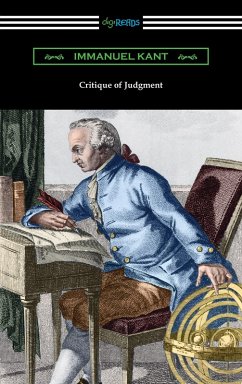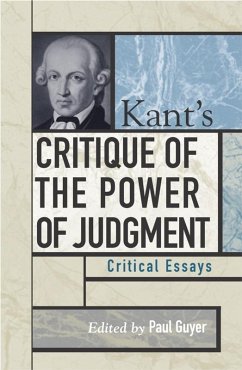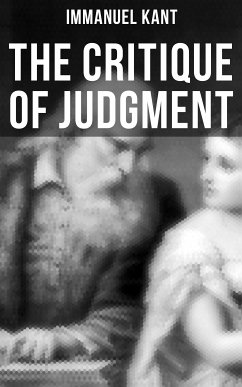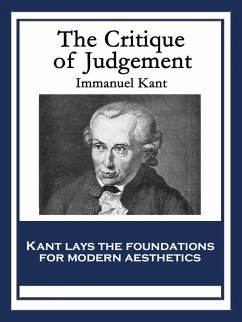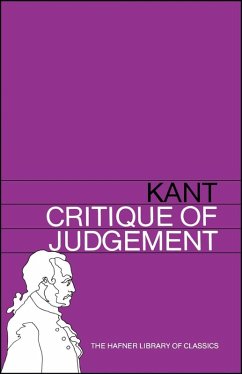
Critique of Judgment (eBook, ePUB)
With Linked Table of Contents

PAYBACK Punkte
1 °P sammeln!
Philosophy may be said to contain the principles of the rational cognition that concepts afford us of things (not merely, as with logic, the principles of the form of thought in general irrespective of the objects), and, thus interpreted, the course, usually adopted, of dividing it into theoretical and practical is perfectly sound. But this makes imperative a specific distinction on the part of the concepts by which the principles of this rational cognition get their object assigned to them, for if the concepts are not distinct they fail to justify a division, which always presupposes that the...
Philosophy may be said to contain the principles of the rational cognition that concepts afford us of things (not merely, as with logic, the principles of the form of thought in general irrespective of the objects), and, thus interpreted, the course, usually adopted, of dividing it into theoretical and practical is perfectly sound. But this makes imperative a specific distinction on the part of the concepts by which the principles of this rational cognition get their object assigned to them, for if the concepts are not distinct they fail to justify a division, which always presupposes that the principles belonging to the rational cognition of the several parts of the science in question are themselves mutually exclusive.
Dieser Download kann aus rechtlichen Gründen nur mit Rechnungsadresse in A, B, BG, CY, CZ, D, DK, EW, E, FIN, F, GR, HR, H, IRL, I, LT, L, LR, M, NL, PL, P, R, S, SLO, SK ausgeliefert werden.





